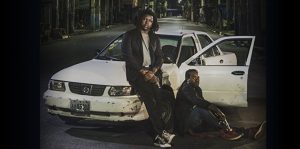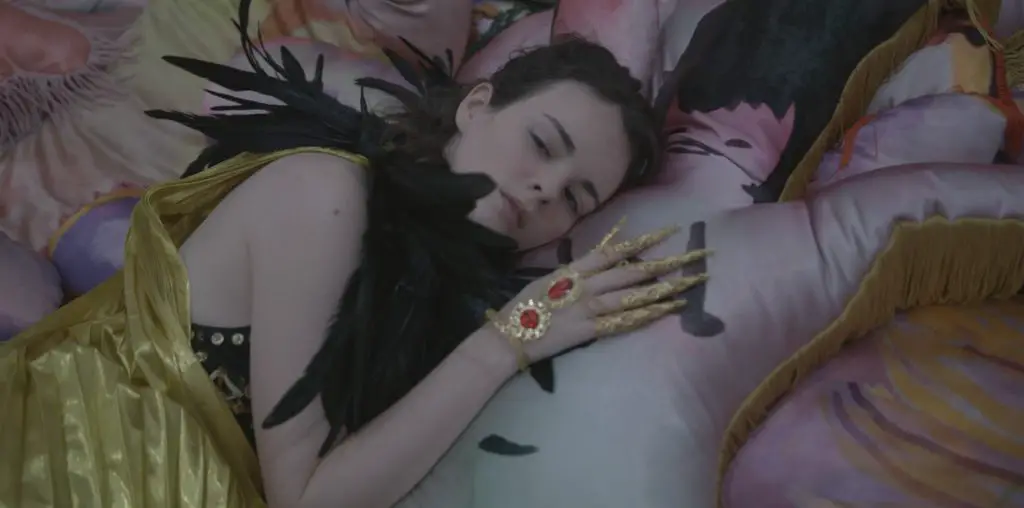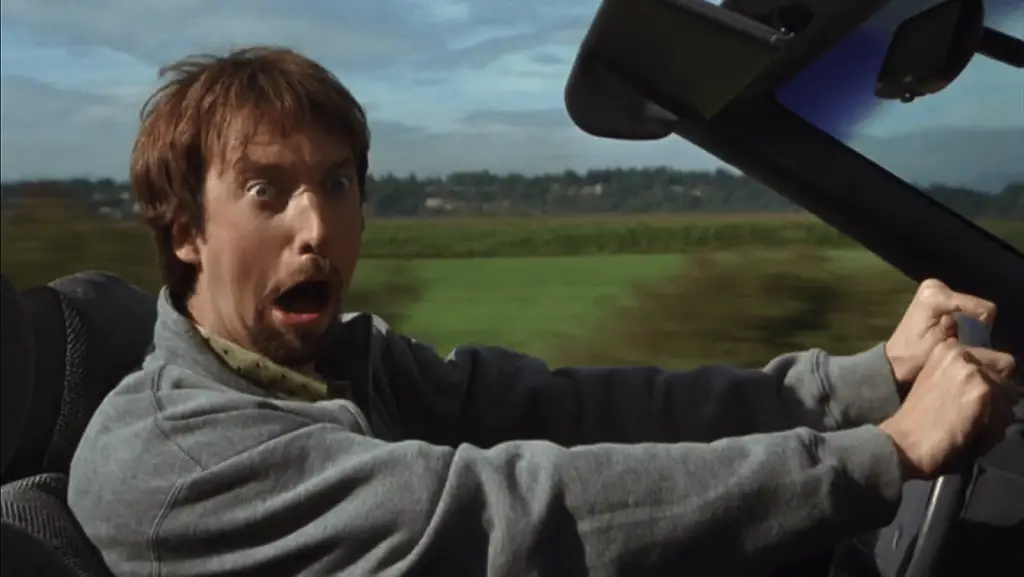
Kafou opens in a dimly lit office, where a government official, Captain Fritz Bama (Manfred Marcelin), sits in front of an oversized portrait of Mother Teresa while sloppily eating from a Styrofoam container. If there was any question as to his ethics, his uniform is unbuttoned, revealing a stained, white t-shirt underneath—a subtle, visual representation of his character. Across from him are two young men, Doc and Zoe (Jasmuel Andri and Rolaphton Mercure, respectively), waiting patiently to receive instruction. They are to escort a man, bound and gagged in the back of a Nissan, to a specific location. The details are above their pay grade. They’re given three specific instructions: don’t open the windows, don’t open the trunk and don’t stop the car, for any reason.

“…finds the inherent lunacy in crime’s minutiae through two characters who retain their humanity in increasingly cartoonish situations.”
With that, we begin an endlessly amusing trek through the Haitian night with two green criminals and the body in the trunk that won’t shut up. They argue over the radio, come across a dog in the street—which Zoe thinks is an evil spirit—and are unconsciously the last straw for a neighborhood of armed insomniacs. Black comedy can be difficult to pull off. If the natural instincts aren’t there, a director can easily end up with a film that is alternately dark and comedic, but never a dark comedy. Bruno Mourral, the director, finds the inherent lunacy in crime’s minutiae through two characters who retain their humanity in increasingly cartoonish situations. The latter achievement is, in no small part, due to the efforts of Andri and Mercure, who are surprisingly comfortable in that negative zone between drama and comedy. One of my favorite moments is when Zoe is washing the remains of an animal off his windshield using hard liquor and a plastic bag. In the life of crime, improvisation is next to godliness.
Like the office that opens the film, the streets of Haiti are dimly lit, which creates a dreamlike atmosphere where there is a minimal field-of-vision. In fact, for the entire film, it almost feels like there’s one big spotlight on Doc and Zoe, illuminated by some omnipotent force for its own morbid amusement. Whether this visual is a result of practicality or style, it really doesn’t matter, because it works, either way. In another case of Mourral bending the environment to his will, there’s an on-foot chase that occurs in a tightly constructed residential area. As the situation becomes progressively dire, the characters maneuver through a maze of ever-narrowing alleys and corridors, creating an increasing sense of claustrophobia, which, in turn, heightens the eventual climax.

“Whether it’s a cruise down the river Styx or just a couple of guys in a Nissan trying to make a buck, Kafou is a trip worth taking.”
At the beginning of the film, we’re told, through a quote, that Kafou means, “the place where roads intersect. Where the world we know meets the invisible world. Each crossroad requires a sacrifice.” This quote is accredited to someone named Legba, who, after some brief research, is apparently a spirit of some kind in Vodou, a Haitian religion. There is a “spiritual journey” element to the film, as evidenced by Zoe’s reaction to the dog, some of the more extreme things that happen—which I won’t spoil—and the surreal atmosphere I alluded to earlier. Whether it’s a cruise down the river Styx or just a couple of guys in a Nissan trying to make a buck, Kafou is a trip worth taking.
Kafou (2017) Directed by Bruno Mourral. Written by Jasmuel Andri, Gilbert Mirabeau Jr. and Bruno Mourral. Starring Jasmuel Andri, Rolaphton Mercure, Manfred Marcelin, Rolando Etienne.
4 out of 5


